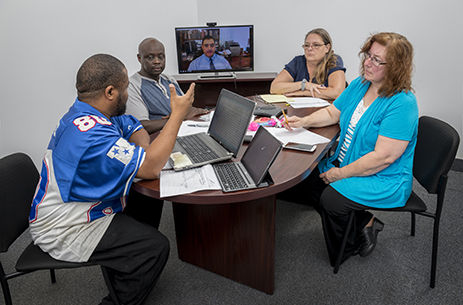American Psychiatric Association features RHD Delaware telepsychiatry program, first of its kind in the nation

November 8, 2017
The American Psychiatric Association takes a look at how RHD Delaware’s Assertive Community Treatment (ACT) teams addressed a shortage of available psychiatrists by developing a telepsychiatry program that is the first program of its kind in the nation:
Two teams managed by the nonprofit Resources for Human Development (RHD) have been using telepsychiatry since 2014. For some, it may seem an odd pairing. A core aspect of ACT—a proven therapy for severe mental illness such as schizophrenia—is the idea of face-to-face contact. Multidisciplinary ACT teams meet with patients both in clinics and in their communities (at home, at work while on lunch break, or at another similar location in the community) to help patients recover and reintegrate into society.
Could this model still work if the ACT psychiatrist was present via an iPad or similar device?
“It doesn’t matter if the psychiatrist is in person or on a screen,” Laura Marvel, director of RHD Kent ACT2, told Psychiatric News. “If we have access to a good doctor, it doesn’t matter where the doctor is.”
The incorporation of telepsychiatry was born out of necessity. In 2012, Delaware awarded ACT contracts to RHD to help provide better outpatient care to people with severe mental illness such as schizophrenia. RHD found out quickly that getting psychiatrists involved was difficult given the time commitments; in addition to traveling across the state to make scheduled or emergency house visits, ACT team members meet weekly to discuss patient progress.
RHD supports 11 ACT programs across the country, which provide recovery-focused, multidisciplinary, intensive support for people in recovery from serious mental illness. Through regular in-home visits and coordinated assistance, RHD ACT brings together counselors, psychiatrists, registered nurses, case managers and vocational specialists to help individuals maintain employment and social relationships, live independently and manage their health. RHD ACT programs work to ensure a recovery-oriented system of care is available and prepared to carry out a full range of treatment functions wherever and whenever needed. Find out more about RHD Delaware ACT here


